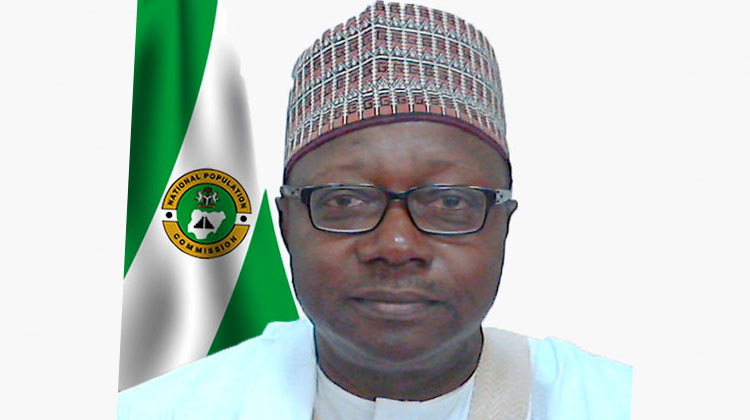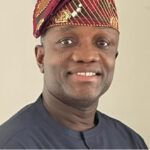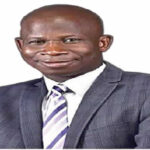
WHILE Nigerians bicker over the conduct and results of the recently held general elections, another potentially divisive statutory national exercise is less than four weeks away. The National Population Commission has stepped up preparations for the 2023 national census slated for May 3-5, the first since 2006, including training of enumerators, household and building listings and acquisition of ICT equipment. Given the country’s despairing experience where enumeration pits the component parts against each other, the NPC and the outgoing President, Major General Muhammadu Buhari (retd.), must tidy up every detail to ensure the success of the headcount.
Nigeria badly needs an accurate headcount. The current estimate of 216 million by the United Nations Fund for Population Activities, and a projection that this will reach 400 million by 2050 compels urgency and rigour. But there are pitfalls and institutional handicaps.
Amid low awareness and several postponements, NPC and regime officials remain upbeat. Rolling out the schedule, its Kwara State Director, Sa’eed Yusuf, on Thursday, said while the numbering of buildings and households would commence nationwide on April 17, five days of training would be held for enumerators and supervisors April 25-30 in their respective local government areas. The actual census would last three days, May 3-5.
Also inaugurating the state’s census publicity committee, NPC’s Katsina State Director, Bala Banye, said the count would produce evidence-based demographic data for development planning purposes. He was confident that the 2023 census would provide “not only accurate, reliable, and acceptable census data but also inclusive and user-friendly data that will be used by all segments of society for development planning and critical programme interventions.”
This optimism is shared by the Buhari regime, which has just approved the release of an additional N15.3 billion to the NPC for the supply and installation of ICT devices for the census, bringing funding so far to over N300 billion.
There is “no going back” on the census, NPC Chairman, Nasir Kwarra, has repeatedly declared, insisting, “This census is going to be different from past censuses. The theory and practice are essentially the same, but we are using high-end technology to conduct this census and it is such that nobody can tamper with any figure. Nobody will be counted more than once.”
Brave words, but pessimism persists among critical stakeholders, including this newspaper. Start with the organisers; having botched every other major governance activity, the Buhari regime does not inspire confidence in its ability to credibly conduct an exercise that defeated past Nigerian governments, including the British colonial rulers that forcibly cobbled over 250 ethnic nationalities into a wobbly federation. The administrative competence of key NPC operatives has not been tested as Buhari’s appointments are usually not based on competence, lack regional balance, and tilt more towards sectionalism, nepotism, and exclusion.
Second, it is obvious that awareness is low among Nigerians, coupled with the distraction of the 2023 elections, some of which outcomes are hotly contested.
Insecurity across the country also raises doubt on the ability of enumerators to effectively cover all parts of the country during the three-day headcount. Across the North, several LGAs are under the control of terrorists and bandits where the state’s writ counts for nothing. Terrorists hiding under the cover of a self-determination agitation have made a few areas in the South-East unsafe for economic and civic activities.
Already, the census has been postponed a few times; from 2022 to April this year and now to May. Will it succeed?
Everywhere else, success is a given and census is a routine national endeavour. A census is the systematic acquisition, recording and calculation information about a population and an essential tool in planning and development. The UN defines its essential features as “individual enumeration, universality within a defined territory, simultaneity and defined periodicity.”
From ancient times, governments have undertaken census for planning purposes, taxation, levies and recruitment of labour, and soldiers. Though the UN recommends, and most countries concur, that a national census be undertaken every 10 years, Nigeria held its last census in 2006, and before then, in 1991. After its independence in 1947, India has been undertaking national censuses every 10 years; Brazil’s 2022 census (postponed from 2020 due to COVID-19) was its 13th and is dutifully done every 10 years. Previously done every five years, censuses are now conducted every 10 years in South Africa.
In Nigeria, however, census has always been politicised, contentious and disputed; constantly reopening the deep fissures in the fragile union along the lines of ethnicity, region and religion. The first census undertaken in any area called Nigeria was in 1866 in the British colony of Lagos and updated in 1871, 1881 and 1901. The 1911 census covered Lagos and the Southern Protectorate; following amalgamation in 1914, the first national surveys were undertaken in 1921 and 1931.
A staggered nationwide census was undertaken in 1953, the last done by the British. The first post-independence census was in 1963 under democratic rule and the next in 1973 under military rule. All had the common denominator of being rejected by significant segments of the country. Their lack of credibility made them largely redundant for planning purposes, the major utility of censuses. National and international agencies relied on estimates. The 1973 count was cancelled having been universally rejected by all stakeholders.
It was not until 1991 that another one was attempted and its result was accepted as credible. Better and more accurately and professionally undertaken, its final figure of 88.5 million exploded some myths, overturning the estimate of 112.3 million based on the disputed 1963 figures and therefore upset parts of the country that had previously been producing suspiciously high population figures.
The 2006 census significantly improved on the gains of 1991, deploying more technology tools, including Geographical Positioning System, and Satellite Imagery, machine-readable forms, Automated Fingerprint Identification System, and Geo-referenced Enumeration Area Maps. Its verdict of 140 million was, however, still disputed by some states that complained of over-counting in some areas and under-counting of their own population.
Experts cite illiteracy (that averages 70 percent in the North), high costs, manipulation, inadequate trained personnel, religious beliefs, and communication deficit as some of the problems inhibiting accurate census in Nigeria.
But Kwarra insists this will be better. Promoted as the country’s first digital census, NPC hopes that improved methods and massive deployment of ICT tools will deliver desirable outcomes.
Crucially, it will avoid contentious profiling questions which, because of the disarticulated revenue-sharing culture, had in the past encouraged cheating.
But pessimism persists. Approving money for ICT just one month to the census adds to the disquiet over the proven incompetence of the government, the lapses in the last elections, insecurity, and the country’s weak institutional capacity to contain subversives.
Buhari, the NPC and law enforcement agencies need to muster uncommon resolve and efficiency to ensure success. Already, while NPC is appealing to everyone to remain in their places of residence, some groups are adamant on returning to their states of origin during the headcount. Others are vowing not to participate. Public enlightenment has been low and there is little visible enthusiasm.
Going forward, census should now be done leveraging ICT, using existing data captured via various platforms such as NIN, passports, voter registration and occupational platforms. The UK has achieved this. Nigerians should cooperate fully in the project.
Buhari should mobilise all state governors, LGs, NGOs, communities, and other national institutions to join hands to sensitise Nigerians to cooperate and ensure its success. He should drive its success and avoid bequeathing a weightier conundrum to his successor.




